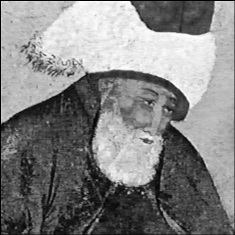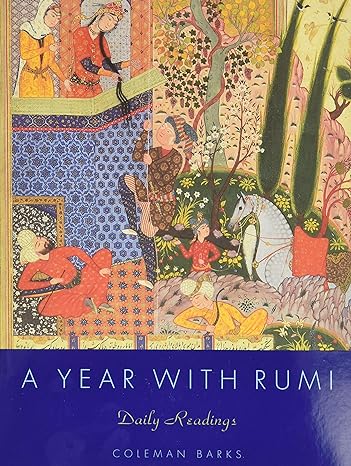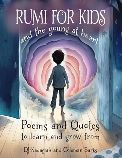| |
|
'Tis said, the pipe and lute that charm our ears
Derive their melody from rolling spheres;
But Faith, o'erpassing speculation's bound,
Can see what sweetens every jangled sound.
We, who are parts of Adam, heard with him
The song of angels and of seraphim.
Our memory, though dull and sad, retains
Some echo still of those unearthly strains.
Oh, music is the meat of all who love,
Music uplifts the soul to realms above.
The ashes glow, the latent fires increase:
We listen and are fed with joy and peace.
This poem is in the public domain.
|

Mawlânâ Jalâl ad-Dîn Muhammad Balkhî, better known as Rumi, (1207 - 1273) was born in Afghanistan but was forced into a nomadic life as a child because his family feared Mongol invasion and general political unrest. Ultimately, Rumi settled in what is now the country of Turkey, where he became a teacher, musician, spiritual leader, and poet. Profoundly affected by meeting Persian poet Attar as a teenager, and by his friendship with an Iranian mystic later on, Rumi produced massive amounts of letters, lectures, and poetry on the purpose and meaning of life. Eight centuries later, his poems are still read and revered around the world.


|
|
rhonasheridan:
With ancient printing in such short supply one wonders how such a beautiful verse has managed to survive a part of the world so full of troubles. I am so glad it did. It is lovely. Who saved it - and how!?
Posted 03/25/2015 02:09 AM
|
KevinArnold:
Oh, music is the meat of all who love,/
Music uplifts the soul to realms above./
What's phenomenal is that Rumi's lyricism blasts through the translation. When I come back I'm going to play a lyre for sure.
Posted 03/24/2015 11:29 PM
|
|
|
|






